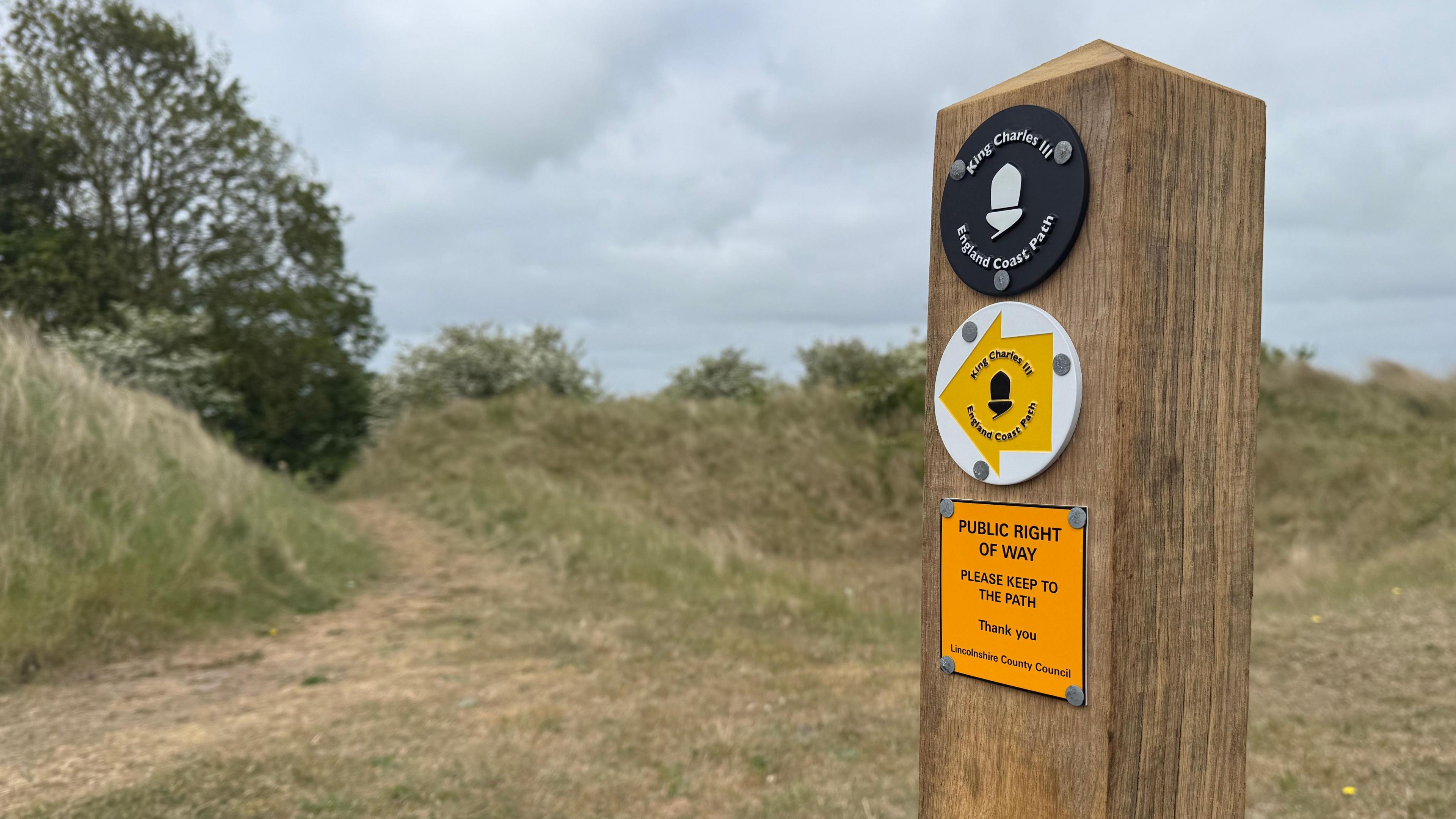Farmers fear 'massive impact' of coast path route
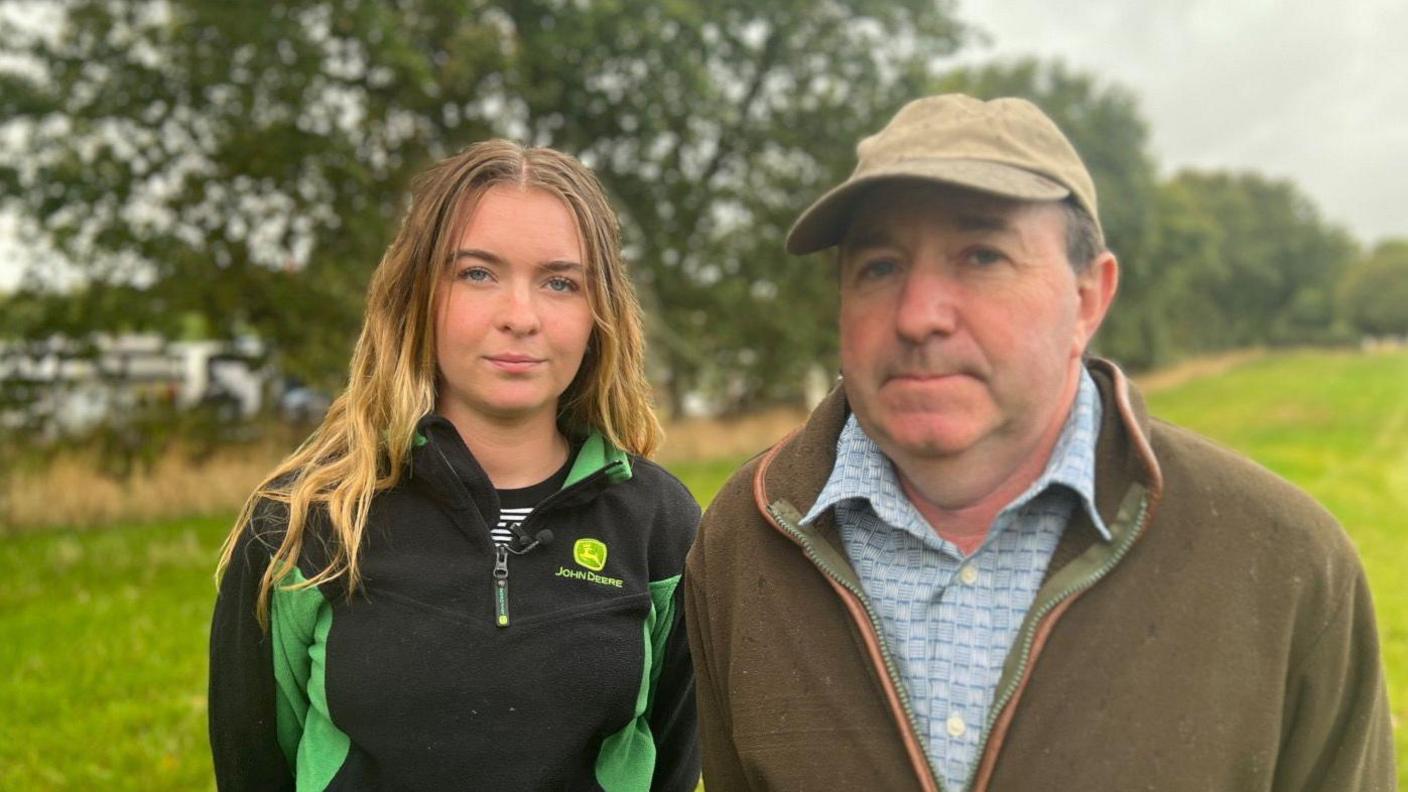
Mark and Fleur Orlik farm land near Whippingham on the Isle of Wight
- Published
Farmers have said proposed changes to the route of a new coastal path could have a "massive impact" on their business.
Mark Orlik and his daughter Fleur live near Whippingham, on the Isle of Wight, where they grow crops and run a livery yard for horses.
But a section of the King Charles III England Coast Path could cross their land after English Heritage refused to allow a 300m (984ft) stretch from running along the beach at the Osborne House estate - a rural retreat once loved by Queen Victoria.
English Heritage said putting that section of path along the beach posed too great a risk to Osborne House, while Natural England said affected parties had the opportunity to object to the plans during a consultation.
A report from Natural England said the new path was intended to improve access to the seaside for walkers.
But the proposal for the trail between East Cowes and Wootton Bridge diverges inland for much of the route.
Other pieces of land blocking a coastal route include a small private airstrip on the Barton Manor estate with "possible excepted status", according to the report.
Barton Manor estate was contacted for comment but the BBC did not receive a response.
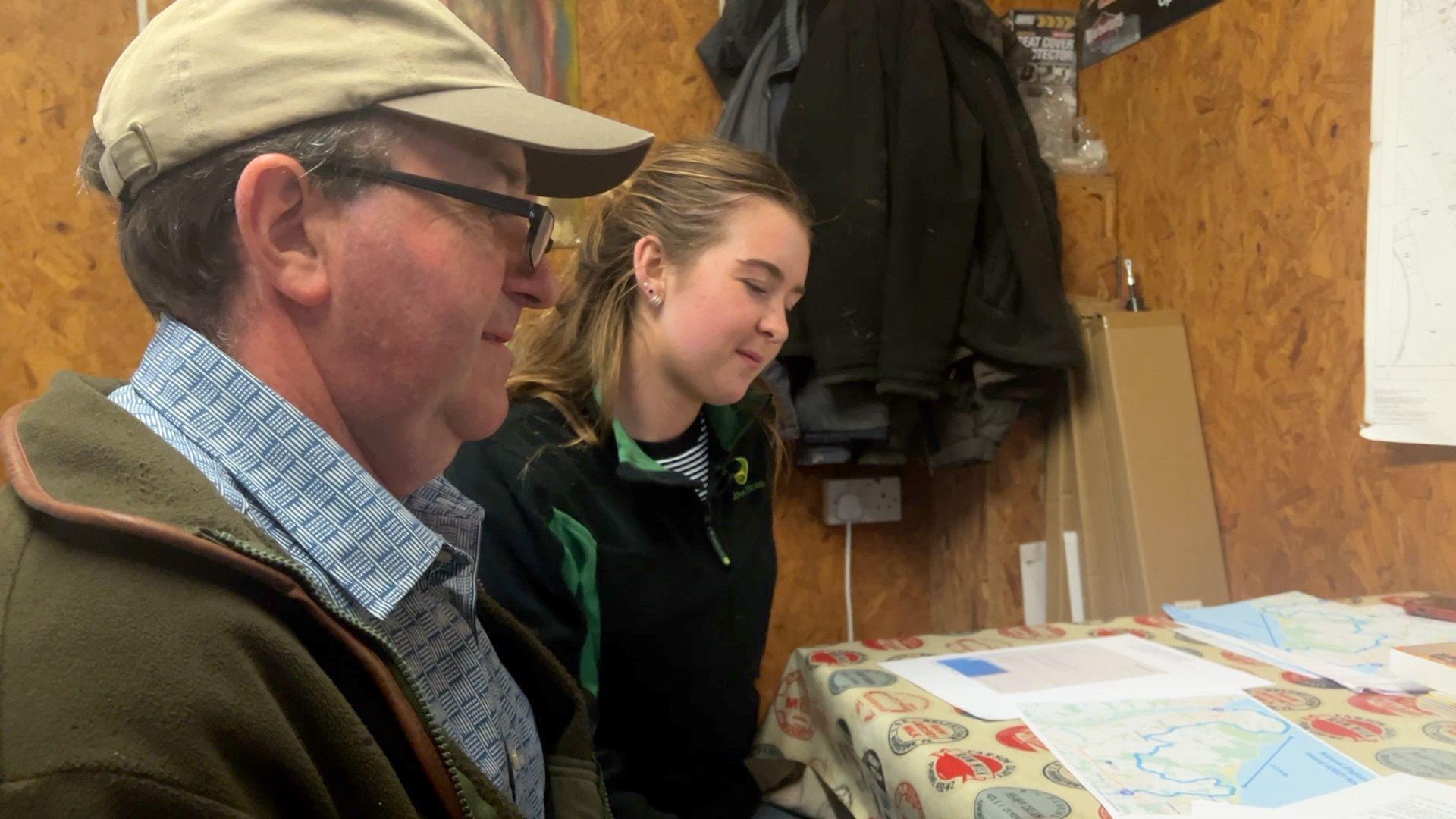
Mark and Fleur Orlik said they believed the proposed route could impact their business
"This is their grand plan for a coastal path when we're miles inland," said Mr Orlik.
"Obviously we've got tractors, sprayers, farm machinery working. We've got horses grazing - and it will probably be a dog poo trail as well."
Walkers on English coastal paths have legal rights allowing them to roam on land seaward of the path - excluding private property and other excepted land - known as "spreading room".
Mr Orlik said he was worried this would make things more difficult.
"We won't know where [the walkers] are, they'll be all over the place," he said.
Ms Orlik said that she and her sister would be the next farmers to take over the site.
"It's going to have a massive impact on us, because the crops that we grow on the farm are for human consumption," she said. "Obviously, having dog faeces left around the crops isn't going to do it any good."
Walking charity, the Ramblers, has also criticised the new proposed route.
Natural England said: "Affected parties have the opportunity to comment or object to our proposals, and these will be reviewed by the Secretary of State."
Natural England is running a consultation on the plans open to landowners or occupiers until 22 October.
English Heritage said: "The risk the path would pose to the security of the site – including Osborne's irreplaceable collection – as well as to the historic gardens was just too great.
"We appreciate that this will be disappointing to some and we want to explore with the Ramblers how else we could open up Osborne to its walkers."
Related topics
- Published4 September
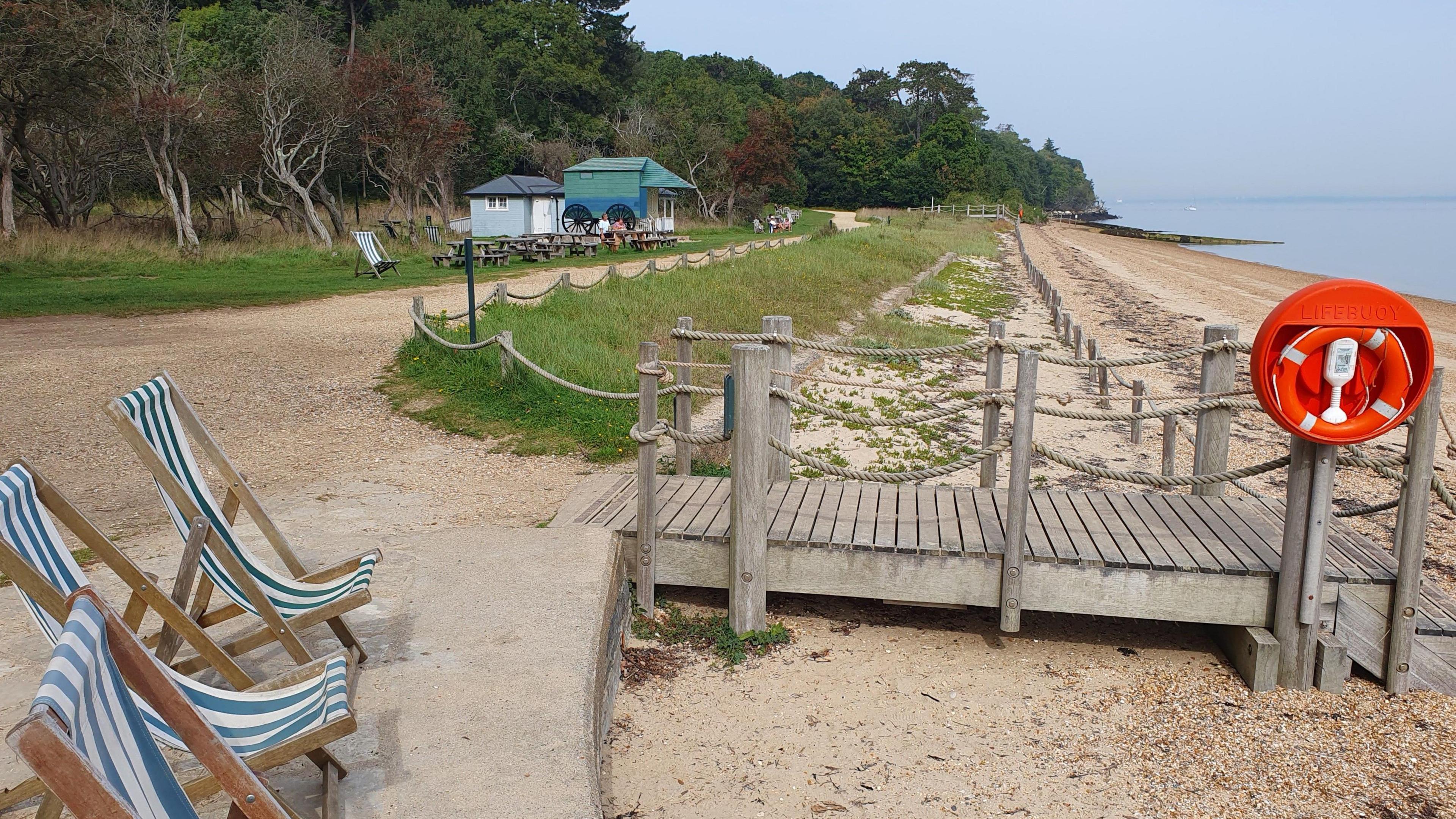
- Published18 August
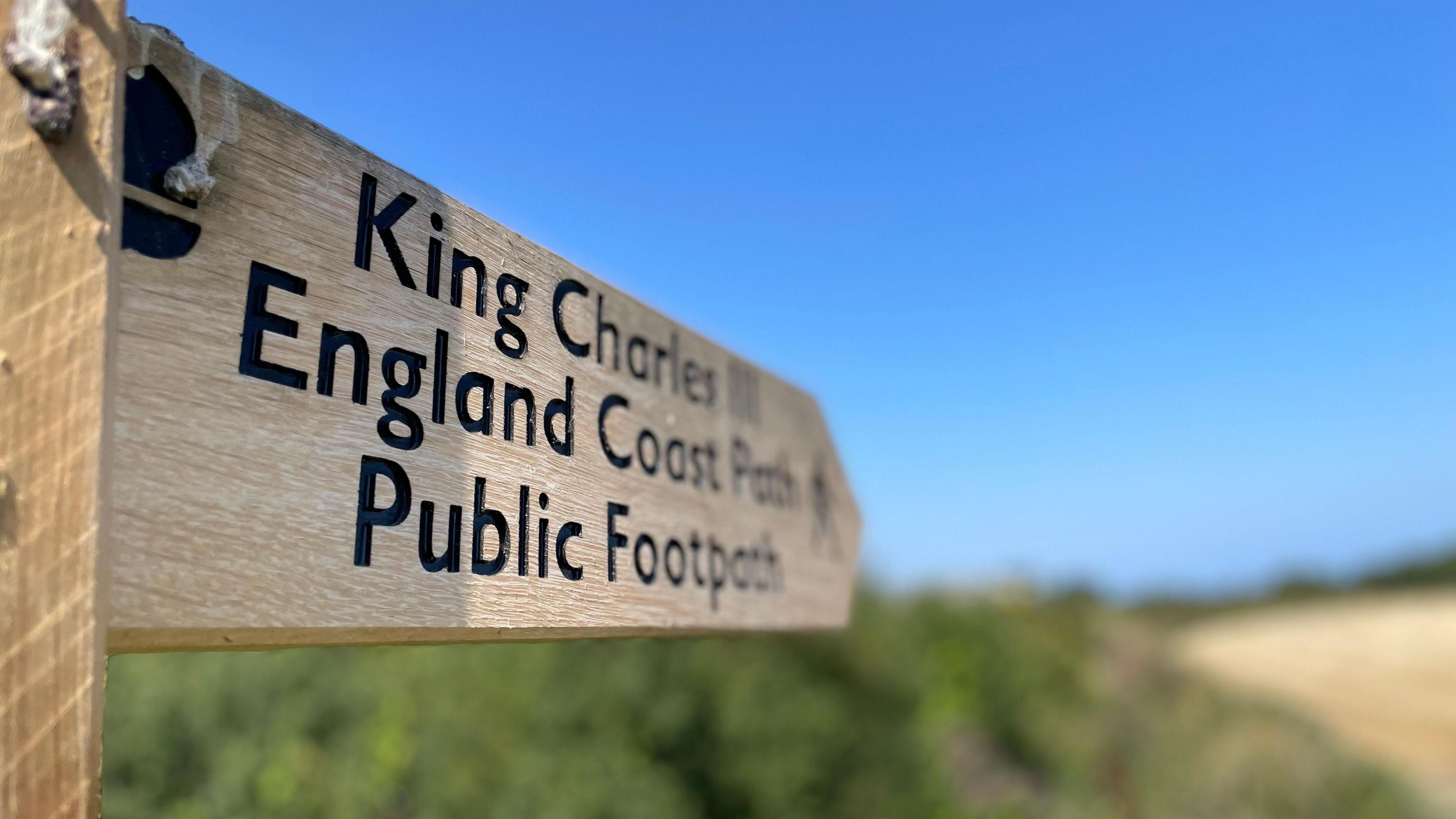
- Published15 May
